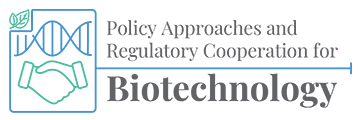Argentina – Brazil (Memorandum of Understanding)
Cooperators:
Secretariat of Agriculture, Livestock, and Fisheries of Argentina and Brazilian National Technical Commission on Biosafety
Geography/Region:
Argentina and Brazil
Mechanism of Cooperation:
Collaboration on Risk/Safety Assessments
Category of Cooperation:
Agreement
Last Updated:
August 8, 2024
Opportunity for APEC Economies
This is a successful case of an agreement between two economies that have a long history of cooperation built upon commonalities and similarities in their regulatory systems. This offers an opportunity for other APEC economies that may share cultural and regulatory similarity to explore a similar collaborative mechanism that would work for them.
Description
The Memorandum of Understanding between authorities at the Secretariat of Agriculture, Livestock, and Fisheries, Argentina and The Brazilian National Technical Commission on Biosafety (CTNBio) was signed in October of 2022 with an objective of strengthening collaboration in science, technology and innovation, with a focus on biosafety of modern biotechnology products, including genetically modified organisms, and understanding biosafety and risk assessment.
The agreement enables a mechanism that promotes the exchange of scientific information related to biosafety and risk assessment of genetically modified organisms and other products of modern biotechnology. Under this agreement, the two economies have jointly established procedures that reduce costs, time, and allow the establishment of common procedures, as well as analyze the possibility of harmonizing norms for the biosafety assessment of modern biotechnology products aimed at the agricultural sectors, in line with the specific legislation of each Party. The economies will continue to work and establish internal procedures in 2024. Both economies have committed to begin joint evaluations and authorizations of modern biotechnology products. Under this agreement, the exchange of information related to the regulatory approach and regulatory differentiation in relation to products derived from New Improvement Techniques is also being promoted.
Relevant links
